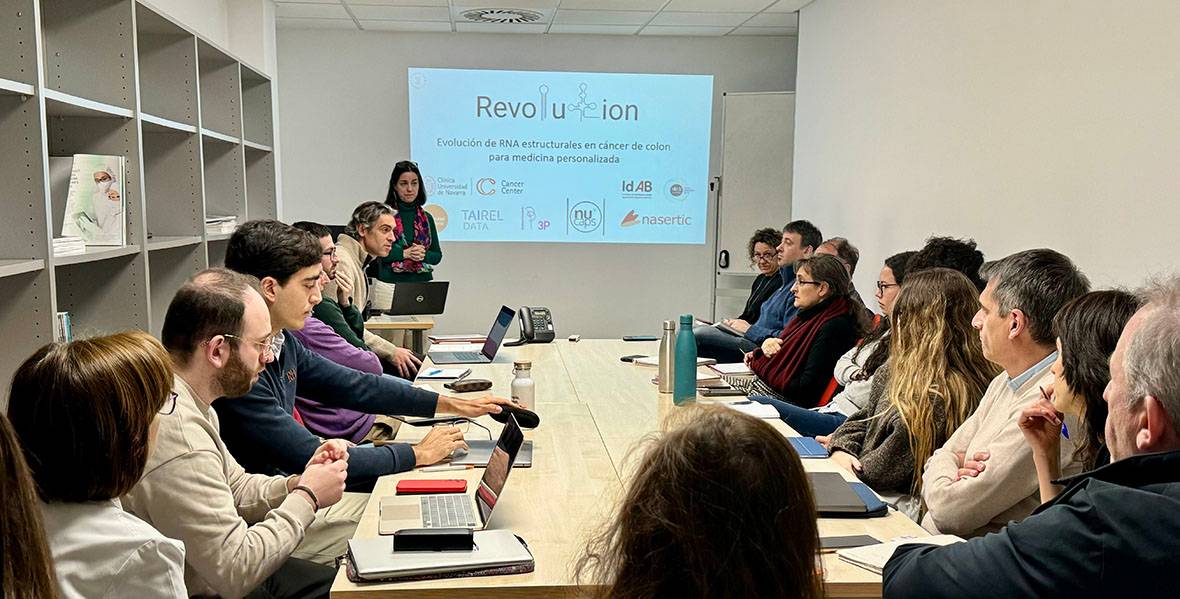Revolution Project
Identification of new biomarkers in colon cancer and development of advanced therapeutic strategies to offer personalized medicine solutions.
Investment and development in RNA-based therapeutics in recent years has grown exponentially with the success of RNA vaccines for Covid. The therapeutic plasticity provided by RNA is enormous in a multitude of diseases and with very diverse applications: as a platform for antigen expression (vaccines), for expressing therapeutic proteins, for gene editing and as structural RNA ligands. In fact, RNA is a macromolecule with an enormous structural complexity that allows it to perform its own functions as a non-coding molecule. In the cell there are many examples of this type of functional RNA such as the ribosome, tRNA, ribozymes, etc.
In this project the research team proposes an approach to exploit the structural richness of RNA both for the identification of new targets/biomarkers in cancer and for the development of advanced therapeutic strategies based on structural RNA motifs.
The research team performs a massive study to determine functional structural RNA motifs to identify new markers for colon cancer and to prioritize functional structural motifs tolerated in vivo for the development of more efficient advanced therapies.
The results obtained from this project will serve to generate intellectual property and know-how that will contribute to the creation of a spin-off focused on the development of structural RNA therapies, which will accelerate the translation of this type of therapies to the clinic.
| Funder: |

Need more information?
If you are interested in learning more about our research, please contact us.
Coordinator and partners
Revolution project participants
Project coordinator:
- FIMA through Cima Universidad de Navarra
Project partners:
- NASERTIC
- TAIREL DATA,SL
- NUCAPS
- IDAB-CSIC
- 3P
- CUN
Team roles in the project
To succeed in this project, the team has a multidisciplinary consortium with the following functions:
Providing, managing and safekeeping
oncology patient samples for the study.
Technological platform
Establish a technological platform for the identification of RNA structures.
Bioinformatics analysis and massive data processing by AI
Develop a working protocol focused on bioinformatics analysis and AI massive data processing to prioritize functional RNA structures.
Develop by artificial evolution structural RNAs with optimized in vivo functions for advanced therapies
Improve specificity for targeting a gene cargo to colon cancer cells; control CAR expression in T lymphocytes for cell adoptive therapies; improve the yield of therapeutic recombinant protein production.
 Revolution Project participants
Revolution Project participants
|
|
|

